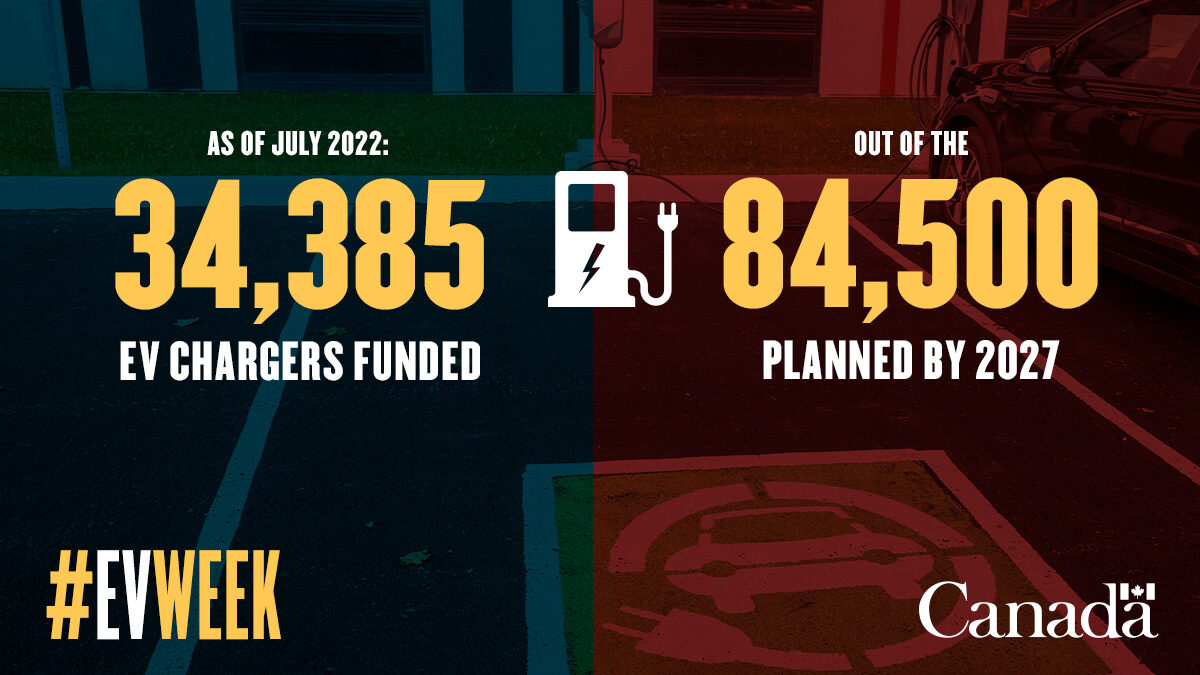The Government of Canada is working to reduce pollution from the transportation sector as it works toward meeting its climate targets. To this end, the federal government is making it easier for Canadians to purchase, charge and drive electric vehicles (EVs) in Nova Scotia and across the country.
On July 14, as part of #EVWeek in Canada, the Honourable Lena Metlege Diab, Member of Parliament for Halifax West, announced that the federal government will provide Ravines Properties Limited with a $361,875 grant to install 112 electric vehicle charging stations at new multi-unit residential buildings in Halifax. This announcement was made on behalf of the Honourable Jonathan Wilkinson, Minister of Natural Resources, and is a partnership between Ravines, Cresco and J2K.
“Our government is making electric vehicles more affordable and charging more accessible where Canadians live, work and play. Investing in more EV chargers, like the ones announced today in Nova Scotia will put more Canadians in the driver’s seat on the road to a net-zero future and help achieve our climate goals,” said Minister Wilkinson.
Starting in the coming months, these EV chargers will be available to Nova Scotians funded through Natural Resources Canada’s Zero-Emission Vehicle Infrastructure Program (ZEVIP). These investments are helping establish a nation-wide network of chargers where Canadians live, work, and play while federal rebates of up to $5,000 are making it more affordable for more Canadians to make the switch to an electric vehicle.
“The Government of Canada knows that we must invest in the infrastructure Canadians want so we can quickly transition to a net-zero future,” added The Honourable Lena Metlege Diab. “This means having electric vehicle chargers in the places Canadians live, work and play. Today’s announcement for EV Week is a big step forward for green investment in Halifax West.”
To help Canada meet its net-zero emissions target by 2050, Infrastructure Canada and the Canada Infrastructure Bank will support the decarbonization of public transit and school buses. In 2019, the government committed to supporting the procurement of 5,000 zero-emissions buses, including nearly 4,000 school buses in British Columbia and Quebec as well as over 1,200 public transit buses in 10 cities from coast to coast. These electric and hydrogen fuel cell buses will be deployed on the road over approximately the next five years.
The Government of Canada is taking action to decarbonize the medium- and heavy-duty vehicle fleet by providing $547.5 million over four years in order to support the purchase or lease of zero-emission vehicles with incentives ranging from $10,000 up to $200,000 depending on a vehicle’s class. This will help businesses and communities make the switch to zero-emissions transportation across Canada.
“J2K and Cresco continually look for solutions to reduce our and our customers’ environmental footprints in all our buildings and make it easy for our tenants to adapt to a changing world. Installing banks of EV chargers in our new and existing buildings is an example of that commitment. We commend this federal funding program for helping us with this achievement,” said Jim Kanellakos, speaking on behalf of J2K and Cresco.
As part of Canada’s effort to meet its target of ensuring that all new passenger vehicles sold in Canada are zero-emission by 2035, these investments parallel those in clean technology, nature protection and other areas that altogether will contribute to building a cleaner, healthier, and more affordable future for all Canadians.

